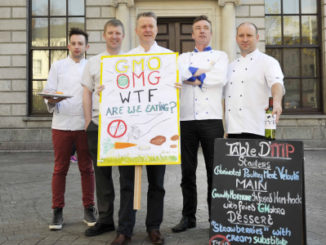On 16 July the DG Trade negotiating team had an appointment with 170 civil society representatives (as well as industry and NGOs). The purpose was to provide an update on the ongoing Transatlantic Trade Investment and Partnership (TTIP) talks taking place between the EU and the US.

The European Commission is the lead negotiator on behalf of the EU’s 28 Member States, as well as the European Parliament (EP). Talks started in earnest in July after the EP did not vote against it amid the US spying scandal.
The TTIP, as well as the Trans Pacific Partnership led by the US, seems to be a major challenge to the multilateral WTO Doha round – stuck for 12 years. Although bilateral, the TTIP could see a return to multi-lateral trade agreements: US/EU trade accounts for half of all world trade.
The official TTIP objectives raised by the EU are not only ‘to improve bilateral relations’ but also ‘to contribute to new standards for the global economy’. See a document leaked on 14 June for more.
The first round of talks were held last week in Washington DC. So what happened?
It seems it was mainly an exchange of views (involving 12 negotiating groups including 300 US officials) on the following issues:
1. The three pillars of TTIP talks
Ongoing negotiations are divided into three pillars:
- Market access: goods and services, investments and public procurement, rules of origins, market access restrictions
- Regulatory issues and non-tariff barriers: cross cutting, horizontal-like issues on transparency and sectoral issues: technical barriers to trade, sanitary and phyto-sanitary (incl. food), cars and chemicals standards, medical devise and financial services
- Trade rules: geographic indications, property rights, customs and trade facilitation, sustainable development
2. The corporate agenda behind growth and jobs promises?
The standard European Commission mantra has already emphasised the large benefits of the TTIP – both for the EU economy and its citizens (see their website) suggesting “EU companies are expected to be able to sell an additional €187 billion worth of goods and services a year to the US.”
According to Jim Harkness, director of IATP in the US: “TTIP will not provide more jobs and more competitiveness. Given the agreements are an attempt to set up new global standards beyond the EU and the US, it’s crucial to assess their impact in the global South”.
Cutting tariffs remain a sensitive issue despite low 3.3% average tariffs for all products, it accounts for 100% of agri-food products such as cheese and 300% on tobacco. The main focus is about differences in technical regulations, standards and certification.
3. Mutual recognition: towards lower food standards?
There are serious threats to the ‘precautionary principle’ that frame the EU food policy framework. These were raised in a letter sent by US agri-food industries earlier this year.
Challenged by the ARC2020 representative during the update, DG Trade negotiators stated that the EU has the right to take legislative rules when there’s no sufficient scientific evidence to defend precautionary measures to food standards.
Although Commissioner De Gucht has opposed beef hormones imports coming into the EU, it is likely he will allow bleached chicken and GM food, having alreaday put a foot into the door for lower anti-microbian rules in poultry sector (US standard is bleached chicken) and GM food with labeling rules. (attached podcast at 29:00 with De Gucht in French: http://www.bfmtv.com/grille/bfmbusiness/podcast-radio/16482/)
Scared by these statements, the French goverment recently launched a consultation of stakeholders on regulatory standards.
The second round of EU/US talks is scheduled the first week of October in Brussels.
Before this the EC will launch a new a tender for a TTIP impact assessment on sustainable development.
- Read the EU initial position papers
- Read the US/EU NGOs letter to TTIP negotiators





